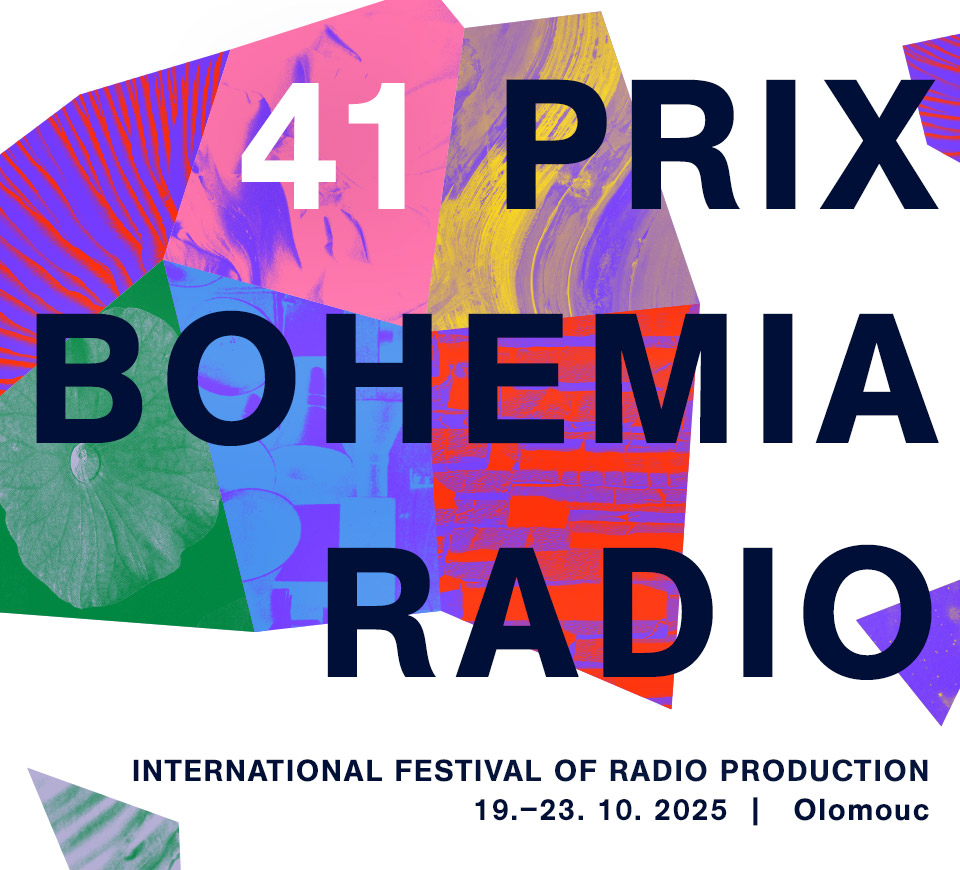This year’s entries for reportage: The magic of radio and the social effects of the pandemic
2021 marks the 37th year of Prix Bohemia Radio – and this year the Covid pandemic was the main thread interweaving contest entries.
The audience, including the expert jury, listened to a total of twelve news reports, in which the effects of this contagion were reflected to varying degrees. But frustration definitely was not the order of the day. Works by both Czech and foreign creators were also there to bring laughs and melt hearts. The foreign authors included reporters from Slovakia, Hungary, Poland, and Lithuania.
Andrzej Brzoska, Jeremy Brandsten, Peter Lange Jolyon Naegele, and David Vaughan made up this category’s expert jury. Martin Balucha, head of Czech Radio’s Foreign News Desk, guided the audience through the day.
The report Sports goes back to the villages – soccer in Kunratice by Czech Radio’s David Nyč kicked off the morning block of the festival’s second day.
Even though Nyč himself noted regarding his contribution that ten minutes was very limiting for a story arc, this report was met with very positive responses from the expert jury. They stressed the precise work with surrounding distractions as well as the overall atmosphere this reportage evoked.
“The listeners feels as if they were there in the report, with those people in that place,” was juror David Vaughan’s excited reaction. “Covid isn’t the point here; it’s mainly about village life,” the jury agreed.
“Magical power and the beauty of radio,” was the poetic assessment of juror Jeremy Brandsten regarding the next contest entry, this time from Poland. The report We bring charity from the world of Gdańsk and the Baltic Sea told of a powerful relationship between a girl and a senior citizen.
Covid was confronted less strongly here than in Olivia the student says nothing’s worse than not going to school, a work that evoked smiles among both the audience and the expert jury.
The nine-year-old Olivia’s merry words brightened the mood in the auditorium too. However, this reportage was criticized for the affected, “robotic” voice in which the child radio actress recounted her lockdown story. Juror Jeremy Bransten appreciated the concept behind Veronika Hlaváčová’s reportage, but not its contents. “It brought nothing of benefit. It told the story everyone’s had,” were his comments.
But everyone out in the hall benefited when Ľubomíra Goljerová (Hulínová) from Slovakia’s RTVS spoke on exactly how the reportage A whole-week story: Slovak scientists and the coronavirus was made.
“It was difficult for me to put together recordings from boring, sterile labs, and from hospitals,” she said. The jurors could direct their comments straight at her. These comments were joined by audience opinions, like one noting that the expert testimonies on which this report was built weren’t necessarily attractive for listeners.
Meanwhile juror Naegel spoke in an opposite tone of the only Czech reportage from the afternoon block: “It’s flawless.” This reportage was Tomáš Kremer’s Cars in Brno’s pedestrian zone have left a foul aftertaste: The shortcut through downtown is back in the hands of pedestrians. Further praise was attributed to its structure and narration, sense of balance, and precisely crafted details. Here once again, the jury could express its opinions to the creator in person.
At the end of the day, the student jury announced that Magdalena Świerczyńska-Dolot’s We bring charity was their pick for best reportage. Even though the author was not present in the hall, the audience had a chance to watch a short thank-you video she had filmed. Zuzana Matějovská, head of the International Department, accepted the prize in her name. The expert jury’s award will, as usual, be announced at the ending gala on Thursday night at Pevnost Poznání (Fort Science).










